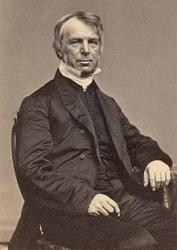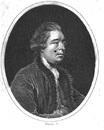1751 - 1834 Person Name: H. S. Oswald Hymnal Number: d767 Author of "O let him whose sorrow" in The Sabbath Hymn Book. Baptist ed. Oswald, Heinrich Siegmund, son of Johann Heinrich Oswald or Osswald, of Nimmersatt, near Liegnitz, in Silesia, was born at Nimmersatt, June 30, 1751. After passing through the school at Schmiedeberg he was for seven years clerk in a public office at Breslau. In 1773 he became Secretary to the Landrath von Prittwitz at Glatz, with whom he remained two years, and was thereafter in business at Hamburg and at Breslau. Through J. D. Hermes, Oberconsistorialrath at Potsdam, whose daughter he married, he became acquainted with King Friedrich Wilhelm II. of Prussia, and in 1791 was appointed reader to the king. He accordingly removed to Potsdam, and was in 1791 appointed also Geheimrath. After the king's death, on Nov. 16, 1797, Oswald received a pension, and retired first to Hirschberg, and then to Breslau, where he died Sept. 8, 1834. (Allgemeine Deutsche Biographie xxiv. 528; Miller's Singers & Songs, 1869, p. 303; extracts from the Breslauer Zeitung, Sept. 12, 1834, and the Schlesische Provinzialblätter, 1835, p. 289, kindly communicated by Dr. Markgraf of the Breslau Stadt Bibliothek, &c.)
Oswald's hymns, over 100 in all, appeared principally in his (1) Unterhaltungen für gläubige Seelen, Berlin, 1792. (2) Gedichte und Lieder fürs Herz, Berlin, 1793. (3) Letzten Mittheilungen meiner der Wahrheit und Religion geweihter Muse, Breslau, 1826. (4) Schwanengesänge, Breslau, n.d. (preface Aug. 1827).
Three or four of Oswald's hymns have passed into German hymnbooks. One has been translated into English, viz.:—
Wem in Leidenstagen. For Mourners. In his Letzte Mittheilungen, 1826, p. 42, in 14 stanza of 4 lines, and entitled "An exhortation to Tranquillity. To the Suffering. Psalm 50, v. 15." Bunsen, in his Versuch, 1833, No. 813 (Allgemeine Gesangbuche, 1846, No. 333), selects st. i.-iii., x., xii.-xir. The singing of this beautiful hymn (in Miss Cox's version) formed an impressive part of the service in the church at Edensor at the funeral of Lord Frederick Cavendish, May 11, 1882. Translated as:—
1. 0! Let him whose sorrow. A very good translation from Bunsen's text, by Miss Cox, in her Sacred Hymns from the German, 1841… included in Alford's Psalms & Hymns, 1844, and others…. Another translation is: "When in thine hours of grief," by Lady E. Fortescue, 1843, p. 71. [Rev. James Mearns, M.A.]
--Excerpts from John Julian, Dictionary of Hymnology (1907)
Heinrich S. Oswald


 My Starred Hymns
My Starred Hymns



